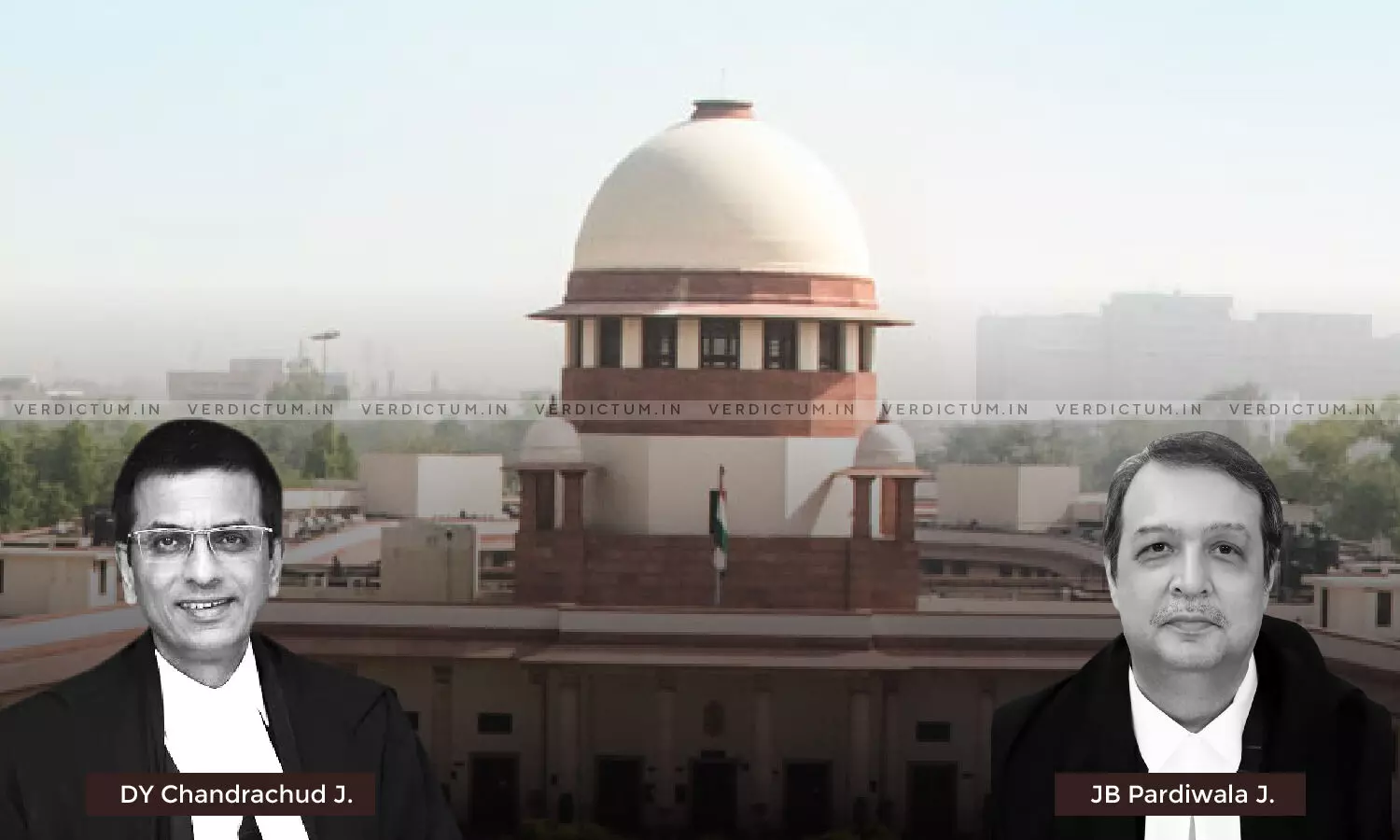
Revisional Jurisdiction U/s. 397 CrPC Can Only Be Exercised Against Final Order Of Acquittal Or Conviction - Supreme Court
 |
|The Supreme Court bench comprising Justice D. Y. Chandrachud and Justice J. B. Pardiwala in a judgment rendered on August 4th held that the revisional jurisdiction under Section 397 CrPC can only be exercised against the final order of acquittal or conviction, or an intermediate order not being interlocutory in nature.
The Court observed, "The revisional jurisdiction under Section 397 CrPC can be exercised where the interest of public justice requires interference for correction of manifest illegality or the prevention of gross miscarriage of justice. A court can exercise its revisional jurisdiction against a final order of acquittal or conviction, or an intermediate order not being interlocutory in nature."
The facts of the issue arose when a dispute occurred between the accused and the villagers of Thoppanahalli village in Maddur, Karnataka on the issue of allocation of water which culminated in the murder of two persons and injuries to several others. An FIR was registered for offences punishable under Sections 143, 147, 148, 504, 323, 302, 307, 114 and 149 of the Indian Penal Code. The FIR stated that the accused came to the village of the appellant armed with knives and rods, and abused and assaulted some of the villagers.
A few of the accused allegedly assaulted and stabbed the appellant, his elder brother, Mutthuraju, and another villager named Nandeesha with knives. The grievously injured persons were first taken to the Government Hospital at Maddur. The doctors at the hospital referred the injured to Mandya District Hospital from where they were further transferred to K R Hospital, Mysore. Both Nandeesha and Mutthuraju succumbed to the injuries. The appellant claims that the FIR was registered on the information which was furnished by him, making him the informant. A chargesheet was filed and the case was committed for trial.
The appellant was examined as PW7. The trial court in its order refused to mark the complaint on the basis of the statement by PW2 and on the ground that PW 7 did not depose in his evidence that he gave the complaint to the police.
The State did not pursue its remedies against the order of the trial court. The appellant instituted a criminal revision under Sections 397(1) and 401 of the CrPC. The High Court by the impugned judgment upheld the order of the trial court, and dismissed the revision petition on the ground of maintainability. The High Court also observed that under Section 397(2) of CrPC, the powers of revision cannot be exercised in relation to an interlocutory order passed in any appeal, inquiry, trial or other proceeding.
The Supreme Court observed that, "According to the charge sheet, the statement of the appellant/ informant formed the basis of the FIR and set the criminal law in motion. Rejection of the prayer of the Public Prosecutor to mark the statement as an exhibit would possibly imperil the validity of the FIR. In this background, the order of the trial court declining to mark the statement of the informant as an exhibit is an intermediate order affecting important rights of the parties and cannot be said to be purely of an interlocutory nature. In the present case, if the statement of the appellant/ informant is not permitted to be marked as an exhibit, it would amount to a gross miscarriage of justice."
Regarding the maintainability of the revision petition, the Court observed that, "The view of the High Court that a victim/ complainant needs to restrict his revision petition to challenging final orders either acquitting the accused or convicting the accused of a lesser offence or imposing inadequate compensation (three requirements mentioned under Section 372 CrPC) is unsustainable, so long as the revision petition is not directed against an interlocutory order, an inbuilt restriction in Section 397(2) of the CrPC. In the present case, the appellant filed a criminal revision as his interests as an informant and as an injured victim were adversely affected by the trial court rejecting the prayer to mark the statement of the informant as an exhibit. Having held that the order of the trial court is not interlocutory in nature and that the bar under Section 397(2) of the CrPC in inapplicable, a criminal revision filed by an informant against the said order of the trial court was maintainable."
Accordingly, the Court allowed the appeal and set aside the impugned judgment of the High Court.
Cause Title - Honnaiah T.H. v. State of Karnataka and Others
Click here to read/download the Judgment